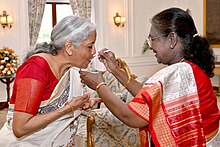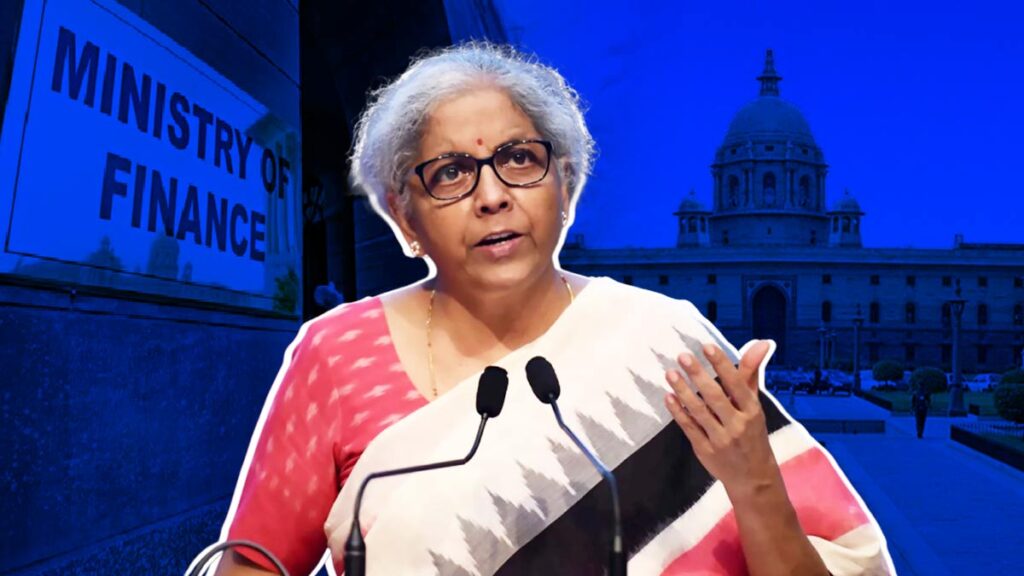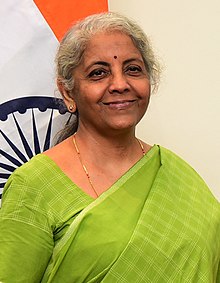
Nirmala Sitharaman, India’s Finance Minister, has received numerous awards and recognitions throughout her illustrious career in politics, finance, and public service. Her contributions to India’s economic policies, defense sector, and international relations have earned her accolades both nationally and globally. Below is an in-depth look at the various honors she has received over the years.
1. Distinguished Alumni Award from Jawaharlal Nehru University (JNU) (2019)
In 2019, Nirmala Sitharaman was conferred the Distinguished Alumni Award by her alma mater, Jawaharlal Nehru University (JNU). The award was a recognition of her contributions to India’s economic and defense policies. Sitharaman pursued her Master’s degree in Economics at JNU, which laid the foundation for her career in finance and policymaking.
This award underscored her role in shaping India’s financial landscape and her remarkable transition from an academic background in economics to holding some of the highest offices in the Indian government.
2. Forbes’ World’s 100 Most Powerful Women (2019, 2020, 2021, 2022, 2023)
Nirmala Sitharaman has consistently featured in Forbes’ list of the 100 Most Powerful Women in the World since 2019. In 2019, she was ranked 34th, and in subsequent years, she moved up in the rankings, reflecting her growing influence in global financial and economic matters.
Her inclusion in this prestigious list is a testament to her leadership in handling India’s economy, particularly during challenging times such as the COVID-19 pandemic. She played a crucial role in India’s fiscal stimulus packages, reforms in taxation policies, and managing the economic fallout of global disruptions.
3. Business Reformer of the Year – Economic Times Awards for Corporate Excellence (2021)
The Economic Times Awards for Corporate Excellence recognized Nirmala Sitharaman as the Business Reformer of the Year in 2021. This award honored her role in implementing significant economic reforms, including:
- The corporate tax cut in 2019, which brought down corporate tax rates, making India more competitive globally.
- Production-Linked Incentive (PLI) schemes, encouraging domestic and foreign investments in manufacturing.
- Major banking sector reforms, including mergers of public sector banks and boosting the financial sector’s resilience.
- Policy measures to ease business regulations and foreign direct investment (FDI) norms.
Her efforts contributed to creating a more business-friendly environment in India, making the country an attractive destination for global investments.
4. Grand Commander of the Order of the Star and Key of the Indian Ocean (GCSK) – Mauritius (2024)
One of the highest international honors conferred upon Sitharaman was the Grand Commander of the Order of the Star and Key of the Indian Ocean (GCSK) by the Republic of Mauritius in 2024. This prestigious award recognized her contributions to strengthening bilateral economic and trade relations between India and Mauritius.
During her tenure as Finance Minister, she played a pivotal role in:
- Strengthening India-Mauritius trade ties through economic cooperation agreements.
- Promoting Indian investments in Mauritius, particularly in the financial and IT sectors.
- Enhancing India’s strategic presence in the Indian Ocean region through diplomatic and economic engagements.
This recognition highlights her role in enhancing India’s global economic diplomacy.
5. India Today’s Most Powerful Women in India (2020, 2021, 2022, 2023)
Sitharaman has been regularly featured in India Today’s list of the Most Powerful Women in India. As Finance Minister, she has spearheaded major reforms and policy decisions, demonstrating remarkable resilience and leadership.
Some of her key contributions include:
- Managing India’s economic policies post-COVID-19, ensuring financial stability.
- Introducing structural reforms in taxation, including the implementation of faceless tax assessment.
- Driving initiatives for self-reliance under Aatmanirbhar Bharat, supporting Indian businesses and startups.
Her presence in this list reinforces her position as a key decision-maker shaping India’s future.
6. Best Finance Minister of the Year for Asia-Pacific (2021) – The Banker
The Banker, a publication of the Financial Times, named Nirmala Sitharaman the Best Finance Minister of the Year for the Asia-Pacific region in 2021. This award was in recognition of her efforts in:
- Handling India’s economic crisis during the pandemic, introducing stimulus packages to revive growth.
- Implementing bold reforms in banking, insurance, and infrastructure.
- Strengthening India’s fiscal policy, financial sector stability, and budget management.
Her pragmatic economic policies were widely acknowledged as crucial in ensuring India’s rapid post-pandemic recovery.
7. Fortune’s Most Powerful Women International List (2021, 2022, 2023)
Nirmala Sitharaman has been featured in Fortune’s Most Powerful Women International List multiple times. Her global recognition stems from:
- Her leadership in India’s economic recovery efforts post-pandemic.
- Driving India’s financial and banking sector reforms.
- Representing India at global financial forums like the G20 and IMF meetings.
Her role in shaping India’s economic trajectory has placed her among the most influential women in global finance and policymaking.
8. Recognition by Policy Institutions and Think Tanks
Several economic and policy think tanks have acknowledged Sitharaman’s contributions:
- Observer Research Foundation (ORF) recognized her for economic policy reforms and financial sector stability.
- The World Economic Forum (WEF) credited her with driving India’s fiscal resilience and growth policies.
- International Monetary Fund (IMF) acknowledged India’s proactive economic recovery policies under her leadership.
Conclusion
Nirmala Sitharaman’s awards and honors reflect her outstanding contributions to India’s economic governance, financial policy-making, and international relations. As India’s first full-time woman Finance Minister, she has played a pivotal role in shaping the country’s economic landscape, driving structural reforms, and positioning India as a global economic powerhouse. Her international recognition highlights her influence beyond national boundaries, making her one of the most powerful leaders in global financial affairs.
SOURCES: - 



